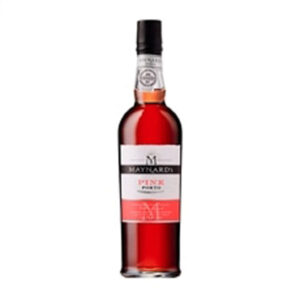Porto Dow's LBV 2011 75cl
39,00 €
Nos últimos vinte e cinco anos, o trabalho realizado nas vinhas e nas vinícolas da Dow resultou em constante aprimoramento da qualidade de todos os portos premium da casa. Em nenhum lugar esse investimento está mais em evidência do que na qualidade das Portas Vintage Antigas Engarrafadas (LBV) da Dow. O LBV da Dow é encorpado, rico, mas perfeitamente equilibrado com taninos suaves e apimentados e com uma acidez fina que garante um equilíbrio perfeito no paladar. O acabamento seco do Dow clássico está sempre presente no LBV da casa; é uma das melhores portas LBV disponíveis.
O LBV da Dow sempre ganhou mais prémios do que a maioria dos outros portos LBV do mercado e esse vinho se tornou reconhecido em todo o mundo como um padrão de excelência no setor, é servido em inúmeros restaurantes finos, em várias grandes companhias aéreas internacionais e, o mais importante, é amplamente apreciado pelos consumidores em muitos países ao redor do mundo.
24 in stock
Description

For more than two centuries, the name DOW has been associated with the best port in the Alto Douro vineyards. During the 20th and 21st centuries, the Symington family built on the legacy of the previous Silva and Dow families. Generations of Symington winemakers have worked in Dow's Quinta do Bomfim and Quinta da Senhora da Ribeira vineyards, creating from them Dow's superbly concentrated wines that are intense and tannic when young, maturing to a sophisticated, attractive elegance with aged and scented with violet and mint aromas. Dow's attractive and distinctive dry finish is the recognizable hallmark of the wines from this great Porto house.
The story of Dow's is unusual among all the great houses in Porto. It all started in 1798, when Bruno da Silva, a Portuguese merchant from Porto, took a journey opposite to that of the first British traders. Bruno settled in London, where he imported wine from his native country. He married an Englishwoman and was quickly assimilated into London society, where his business acumen led to a great reputation for his wines. But the outbreak of the Napoleonic Wars put his business at risk. Undaunted, Bruno da Silva applied for 'letters of marque' (Royal Assent to equip a merchant ship with weapons) to ensure safe passage from his Port of Porto to Bristol and London. It became the first and only port company to transport its precious cargo of barrels from good ports under its own armed protection across the treacherous Bay of Biscay,
The port shipping business was continued by Bruno's son, John da Silva, who in 1862 brought Frederick William Cosens into partnership. Together with John's son Edward, they became the active partners of Silva & Cosens. Edward da Silva inherited his grandfather's business ability and the company continued to prosper. Edward became a highly respected figure in the London wine trade and was one of the founders of the Wine Benevolent Society, the leading charity that survives today as the leading British wine trade organization. Edward da Silva would be president of the Benevolent and then, from 1892, its president for many years.
As the company continued to expand, Edward da Silva and Frederick Cosens were joined by George Acheson Warre, whose well-known family had been involved in the Porto trade since its early years. The GAW joined as a partner in 1868 and became its driving force in Portugal.
In 1877, Silva & Cosens merged with another leading port company, Dow & Co, whose main partner was James Ramsay Dow, who had come to prominence in 1856 with the publication of his important treatise, 'Inquiry into the Fungus Suggestions for a remedy. At the time, the Oidium fungus was devastating the Douro vineyards.
Although smaller than Silva & Cosens, Dow & Co had become a highly regarded port producer, with a particularly good reputation for its Vintage Ports, and when the two companies merged it was decided to adopt DOW'S as a brand.
Additional information
| Weight | 1,4 kg |
|---|






